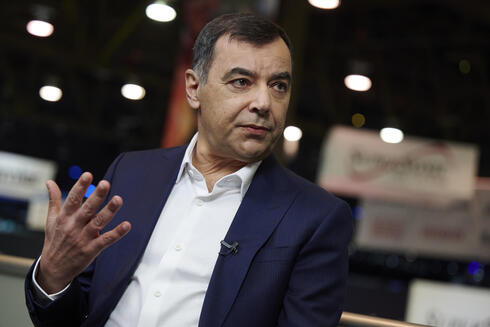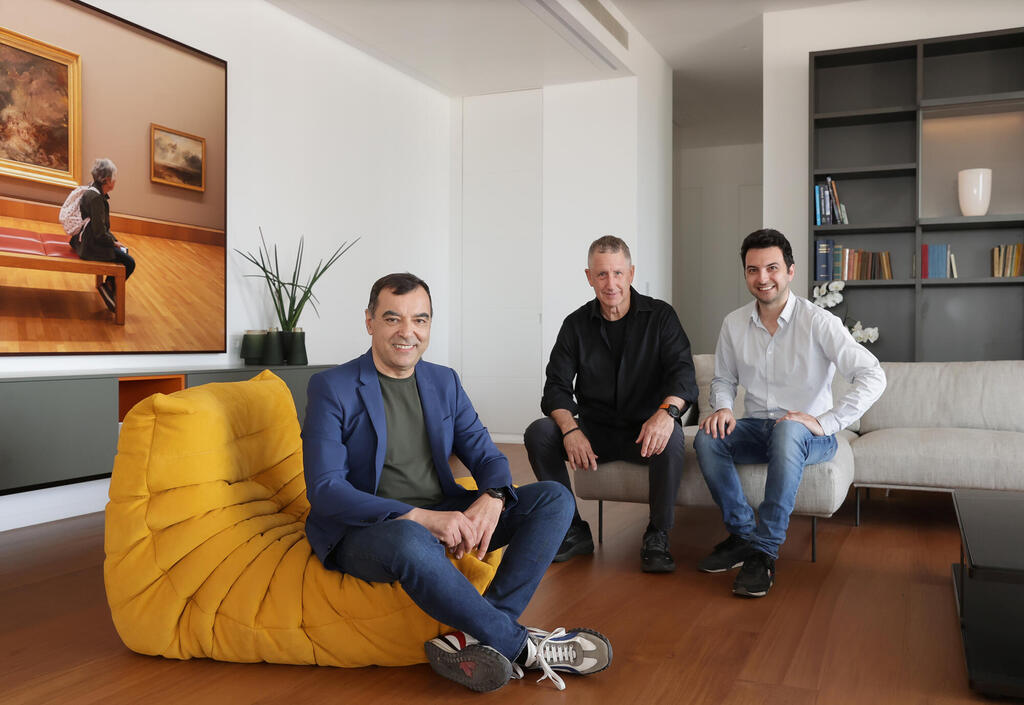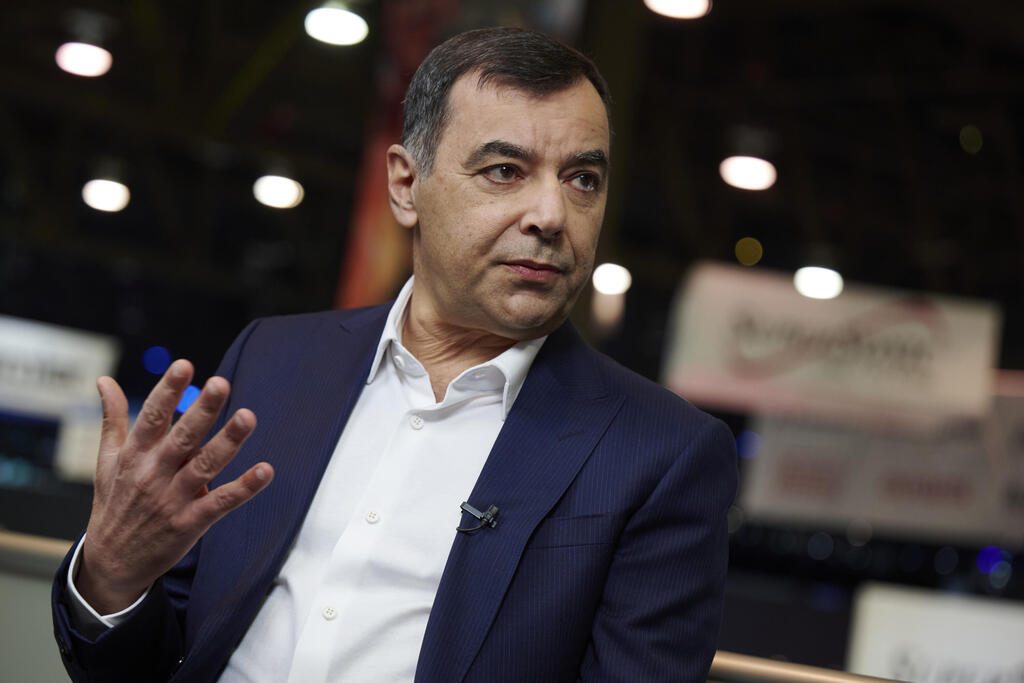
The highs and lows of Amnon Shashua's tech empire
Why the tech visionary behind Mobileye is facing his toughest business challenges yet.
Amnon Shashua is considered one of the technological geniuses of our generation. When he speaks, everyone listens. As a professor and one of the pioneers in machine vision and artificial intelligence, Shashua gained worldwide recognition as a trailblazer in the field of autonomous vehicles after founding Mobileye in 1999. Although the vision of fully autonomous vehicles has not yet materialized at the expected speed, Shashua leveraged Mobileye's strong start to establish a series of additional ventures over the years. He has also put Israel on the map, creating an autonomous vehicle industry and building a high-quality workforce in artificial intelligence, alongside ventures in various other sectors.
Following Mobileye, Shashua's crazy ventures lab also launched OrCam, which was designed to assist the visually impaired in reading; One Zero, a digital bank with the goal of providing personalized banking services akin to those enjoyed by high-net-worth individuals; AI21, which operates in the AI space alongside players like OpenAI and Anthropic; and, most recently, Menteebot, a robot designed to perform household chores. Shashua remains involved in all his ventures, but in the past year, the ones that have long since left the development lab and were expected to thrive in the business world have stumbled. The past year has been a challenging one for three of his companies—OrCam, Mobileye, and the digital bank One Zero—each of which has struggled financially, with One Zero reporting significant losses in 2023.
The biggest drama is unfolding at Mobileye, which recently dropped below the value at which it was sold to Intel in 2017 and below the value at which it was reissued two years ago. After the cancellation of the Wiz-Google deal, Mobileye still holds the title of the largest Israeli exit, having been sold for $15 billion. However, Mobileye's stock has plunged 65% since the beginning of the year after the company repeatedly lowered its forecasts. The most recent forecast adjustment occurred last week, with the company—whose main product is currently systems that make vehicles nearly autonomous—citing challenges in the Chinese car market due to both its slowdown and volatility. Mobileye now expects annual revenues of $1.6-$1.7 billion in 2024, down from the original forecast of $2.6-$2.9 billion. Wall Street investors have been unforgiving of these repeated forecast revisions and have punished Shashua, who serves as Mobileye's CEO, for failing to manage expectations.
OrCam has also been a disappointment, particularly surprising given Shashua's status as one of the world's leading minds in AI. He did not anticipate in time the significant threat that advancements in AI posed to OrCam's core business. For years, OrCam's technology was considered revolutionary and attracted global attention, even enlisting the famous soccer player Leo Messi as an ambassador. However, on a business level, the venture did not take off, peaking at sales of only $50 million. OrCam began to dream of an IPO, but as the industry shifted toward purely software-based solutions, its relatively cumbersome product, which includes glasses and a specialized camera, became less attractive. This led to a loss of market share, and a week and a half ago, OrCam announced the closure of its glasses-based operations. As a result, the company, which once employed over 400 people, now has only a few dozen employees and has returned to startup mode, shifting focus to hearing aids. Although this new product has been in development for three years and is almost ready for market, it is not yet generating revenue.
The One Zero digital bank launched with a promise of AI-powered personalized banking services, but so far, it has not lived up to expectations. The bank revealed at the beginning of the year that it had lost NIS 620 million (approximately $166 million) by the end of 2023, consuming nearly two-thirds of the funds it had raised. Despite heavy investment in technology development, advertising, and aggressive marketing, the bank has only managed to recruit 100,000 customers, of which 70,000 are active. These numbers fall far short of expectations and have not made any significant impact on Israel's traditional, competition-free banking market. Unlike Mobileye and OrCam, some of the challenges here can still be attributed to growing pains and the significant investments required to compete with established banks that offer a wide range of services, beyond just attractive deposit interest rates and a limited securities portfolio.
Shashua has two more startups that continue to benefit from the aura of promise that has characterized all his ventures in their early stages. The first and most well-known is AI21, which became a unicorn after raising funds at a valuation of $1.4 billion at the end of 2023. The second, much smaller venture is Mentee Robotics, which is working on developing a humanoid robot that will respond to voice commands and perform various tasks, such as housework. AI21 has the potential to become a major success, as it competes at the forefront of technology with well-known names like OpenAI, Anthropic, and Mistral, with its own language model designed for generative AI applications. However, the pace of its growth and increase in valuation lags behind the "arms race" in the U.S.
What explains this series of disappointments? As always, there is no single explanation, but rather a combination of factors that create the gap between vision and reality. Shashua himself cannot split his time between five companies, and he actively manages only Mobileye, to which he devotes most of his attention. The other companies are run by hired CEOs, as in the case of One Zero and OrCam, or by co-founders who partnered with Shashua at the establishment stage, as with AI21 and Mentee. While Shashua's ideas are always exciting, sometimes they falter in execution, whether due to failure to identify the right business model or excessive enthusiasm for technology. Shashua has the ability to inspire with this enthusiasm, even when the technology has yet to prove its commercial viability.
2 View gallery


Amnon Shashua together with AI21 co-founders Yoav Shoham and Ori Goshen.
(Photo: Orel Cohen)
Some also suggest an alternative, and rather surprising, explanation: the very presence and involvement of Shashua may lead to a certain complacency in the companies he is involved with. The financial backing he can provide, as one of Israel's wealthiest and most liquid individuals, combined with his global reputation that attracts top-tier investors, might paradoxically be a disadvantage. The assumption, even if not always justified, that additional capital will always be available might lead to more experimentation and less pressure to perform and meet goals.
It is also important to note that all of Shashua's companies are deep-tech ventures, meaning they are based on advanced technology that requires greater-than-usual resource investment. Additionally, except for Mobileye, his companies target end consumers rather than the business market. These two characteristics are unusual in Israeli high-tech, which typically focuses on software for enterprises, often in the startup phase. Developing deep technologies and targeting the consumer market make achieving economic success particularly complex and slow.
Another common denominator of Shashua's companies is a certain arrogance that seems ingrained in their DNA—perhaps not a bug, but a feature. The companies he co-founded are always positioned as the most innovative, revolutionary, and promising, thanks to their technology and Shashua's reputation. Those who know Shashua might say this attitude reflects his own personality. However, while Shashua's arrogance is often backed by tangible achievements, his companies are still startups that sometimes mistakenly believe they've already conquered the world.
Three of Shashua's five companies are currently at a difficult point in their business trajectories, but they are not beyond recovery. Mobileye needs to learn to manage investors' expectations better. Blaming volatility in the Chinese market every time is not sustainable, as no company operates without uncertainty or competition. The digital bank One Zero needs to clarify its strategic direction. Currently, it seems aimed at more sophisticated and affluent customers but still struggles to provide all the services they require. Banking cannot rely solely on interest rates for deposits, as the most strategic customers for traditional banks are often exempt from most fees and receive higher interest rates, making One Zero's offerings less attractive. OrCam, at this stage, is the biggest question mark, essentially starting over, but this also greatly reduces the pressure on it.
The really big question for all of Shashua's companies is whether his lab will continue to thrive and become a business success now that all the major tech companies—from Google to Nvidia—are entering his field. The futuristic vision that could previously be developed in relative quiet has now become the main arena of global competition, with all eyes on it and everyone wanting a piece. This question remains open.















